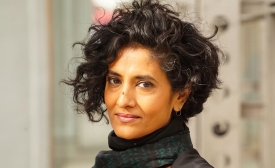indian diaspora
Yoga has offered the Indian state unprecedented opportunities for global, media-savvy political performance. In recent years, the nation has made international headlines by creating a national ministry for yoga. It has promoted yoga tourism; staged mass yoga practices and Indian officials have even proposed yoga as a national solution to an astonishing range of social problems, from reducing rape to curing cancer.
In a Johannesburg concert venue that usually hosts pop stars, Indian prime minister Narendra Modi had the crowd on their feet. Modi is in South Africa as part of a tour of southern and east Africa aimed at strengthening diplomatic and economic ties. [...] This human connection is the foundation in Modi’s plans to create a stronger presence in Africa, as the country tries to match China. India’s trade with Africa has grown from $1 billion in 1995, to $35 billion in 2008, rising to roughly $70 billion last year.
South Africa was one of the high-priority visits for Prime Minister Narendra Modi, not just because of the shared partnership on multilateral fora but also because of historic ties that connect the two nations. This is the first visit by an Indian Prime Minister in the last 10 years. [...] The Indian media, along with a sections of the American press has billed this visit as another effort by New Delhi to counterbalance Beijing’s influence in the continent.
Daya Kishan Thussu’s Communicating India’s Soft Power: Buddha to Bollywood (Sage, 2016) is a rare resource on the subject of the country’s ‘soft power’. As the author himself claims, “on the soft power of China itself there are at least half a dozen books published in English – many more in Mandarin – while in the case of India the terrain is blank, despite its large array of soft power elements”.
“You are the symbols of India’s soft power. You are the unofficial ambassadors, the cultural ambassadors,” Indian President Pranab Mukherjee told expatriates in Windhoek, Namibia, last week. The Southwest African nation has barely 300 expatriates, a miniscule part of a 30 million diaspora spread globally that is being rallied as never before. Mukherjee chose this motley group of businessmen and professionals to propose “a new relationship” with the entire continent of Africa.
India’s Prime Minister Narendra Modi assumed office in May 2014. [...] His political mandate to foster economic growth has become a tool to reach out to the international community and, simultaneously, to reshape India’s image. His interactions with political leaders from other countries have generally increased global interest in India and gained favourable comment in the foreign press.

A journalist takes on India's historic "youth bulge."
Narendra Modi may have politely enjoyed the Red Arrows and his night at that charming B&B called Chequers. But it took a take-over of England's national stadium to a pulsating Bhangra beat and a kaleidoscope of saris to show the true dynamism of Anglo-Indian relations - and the populist talents of its most powerful politician.







